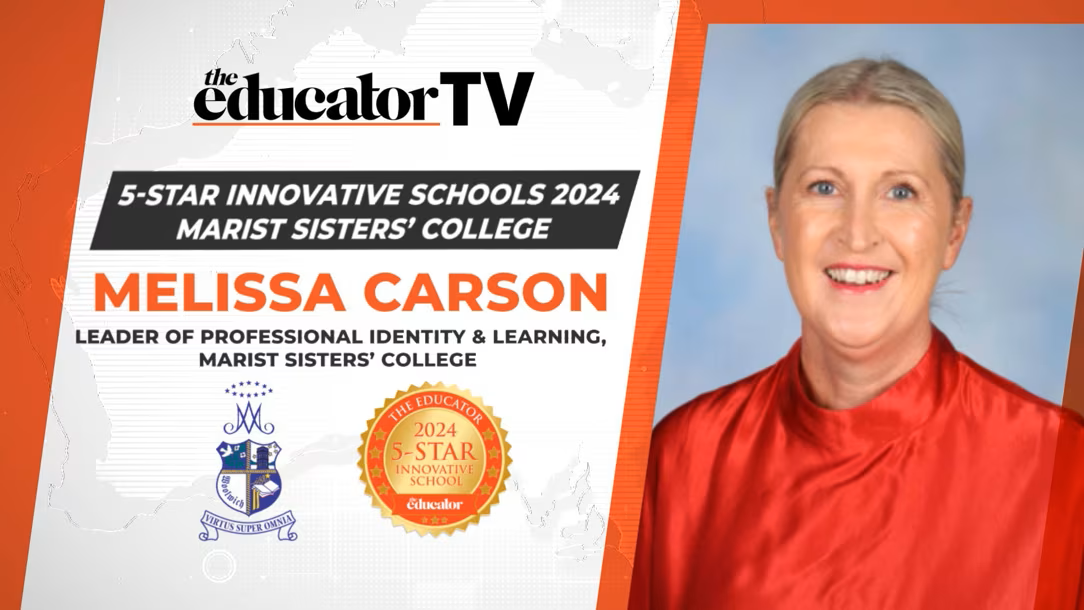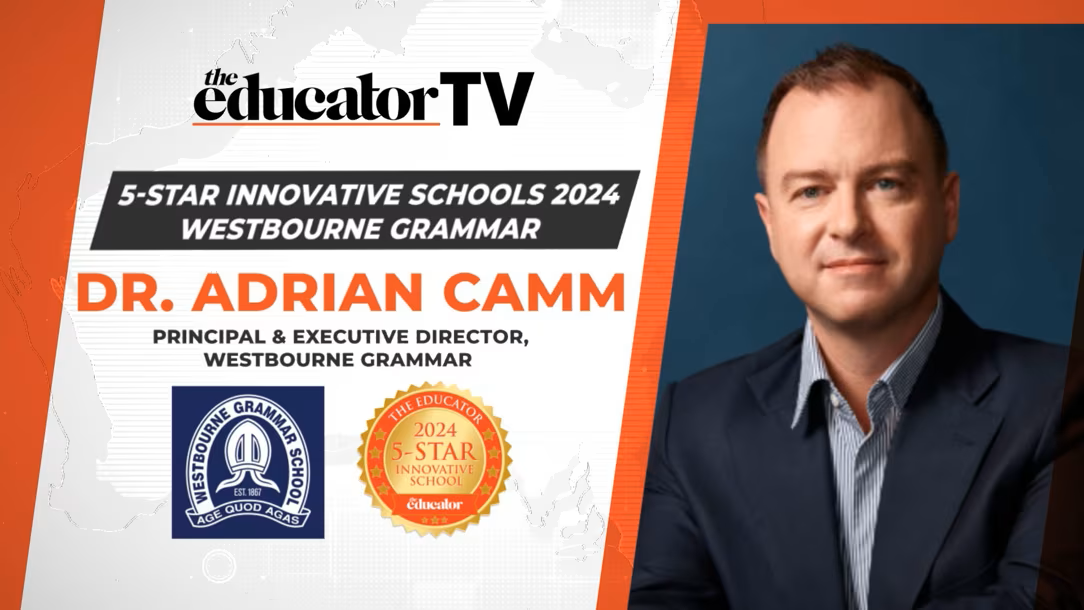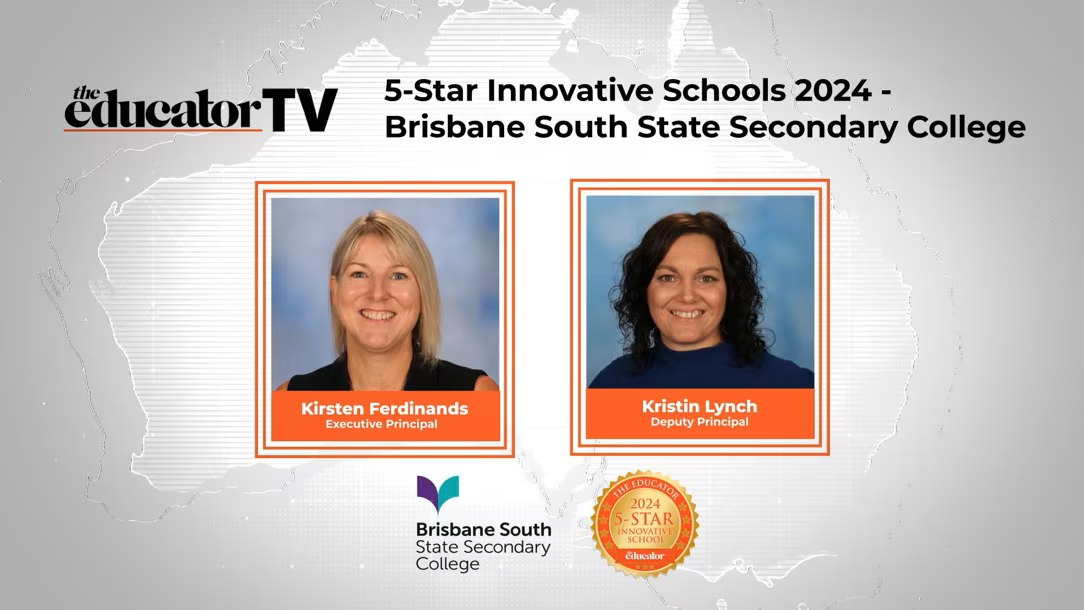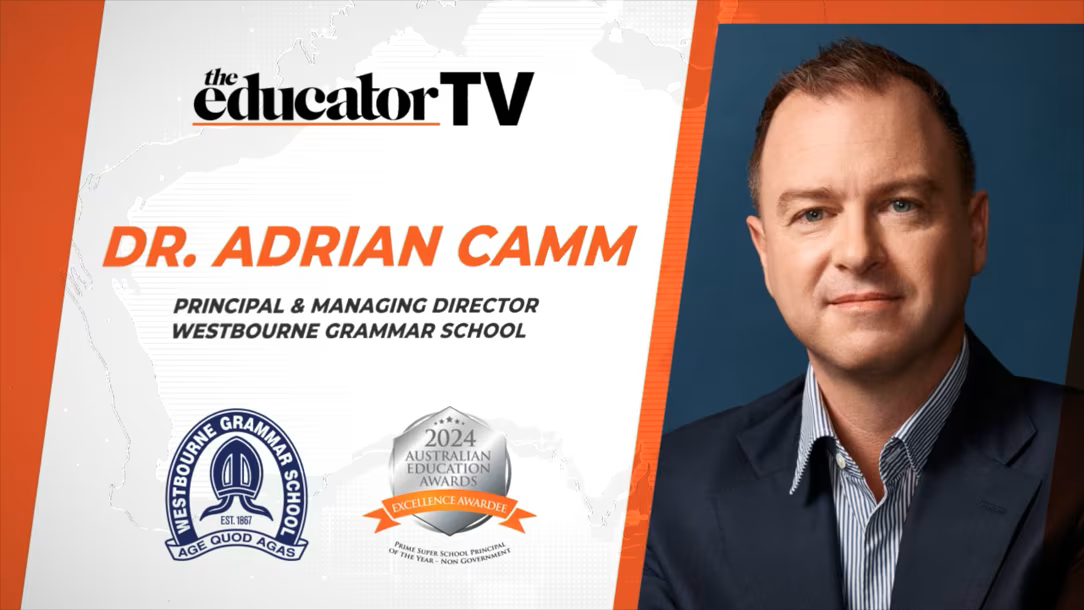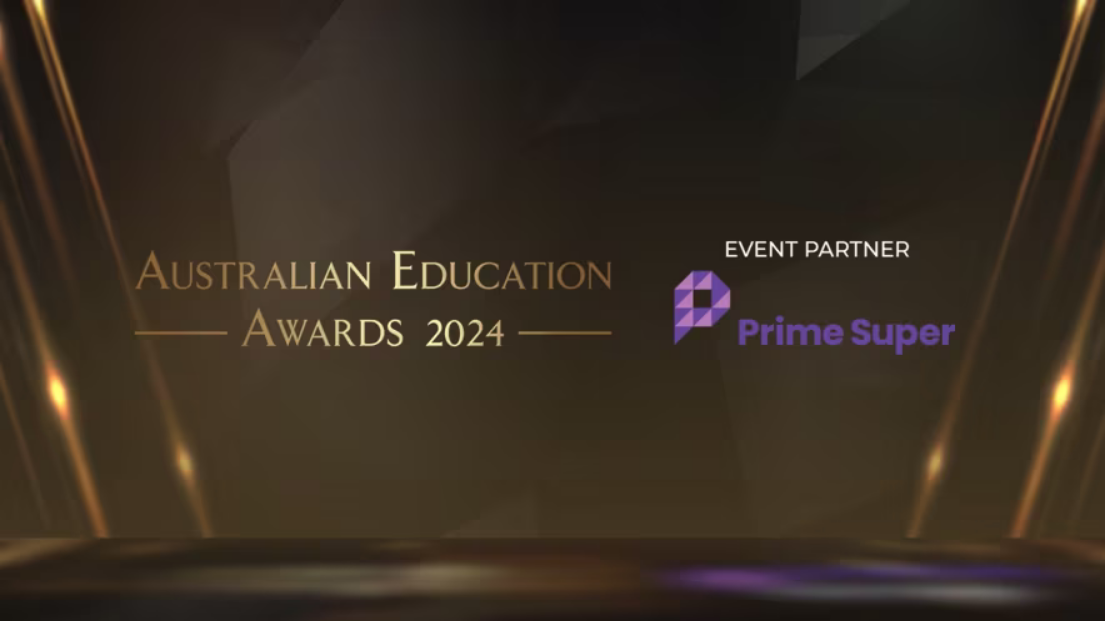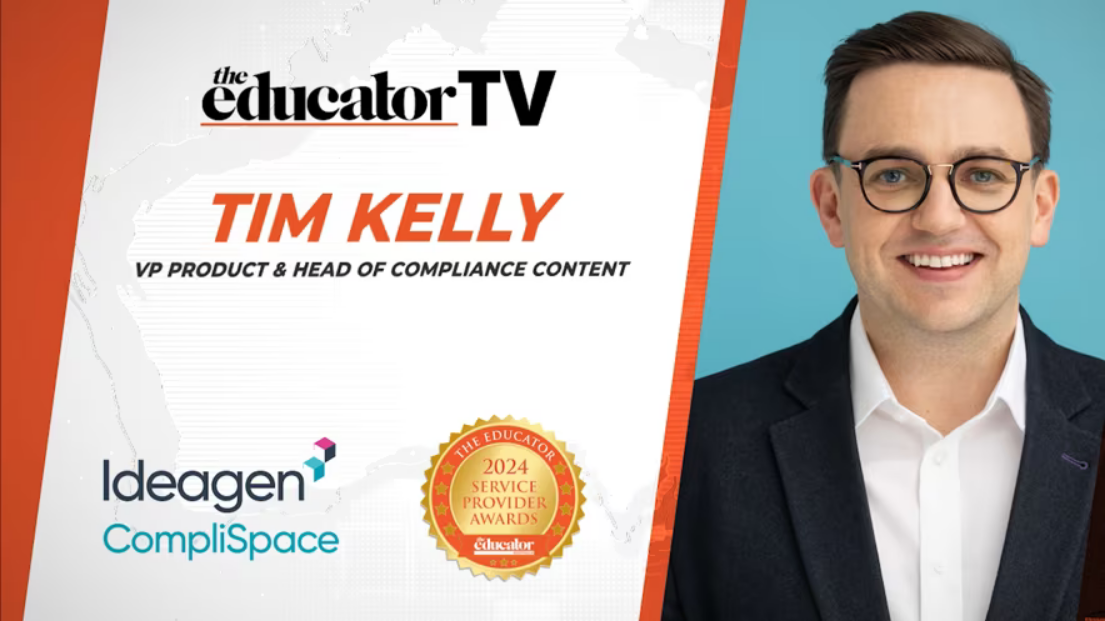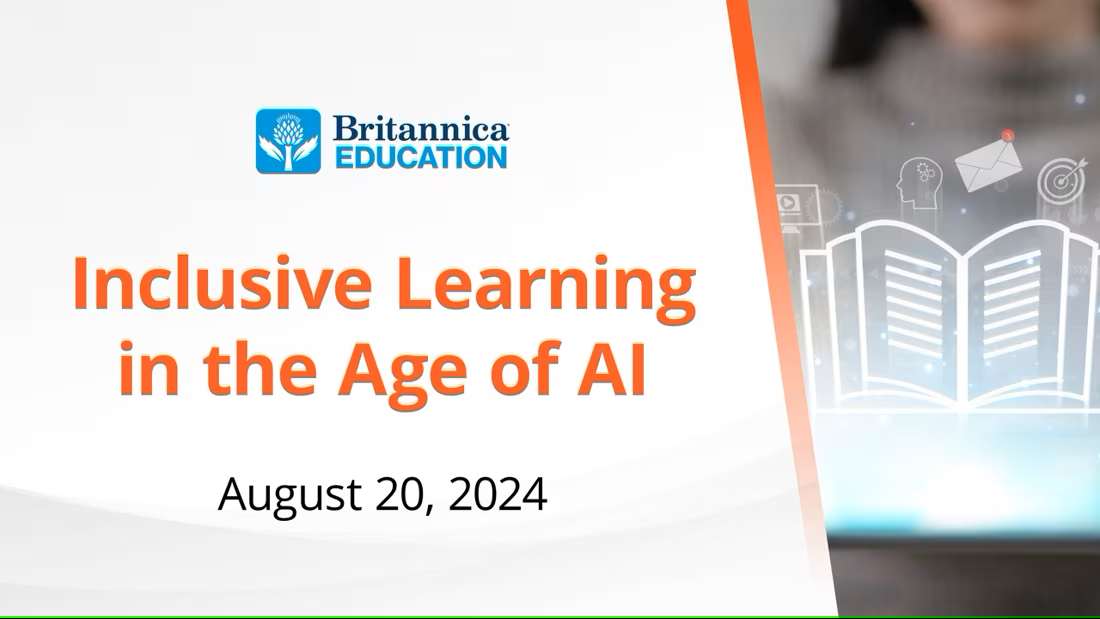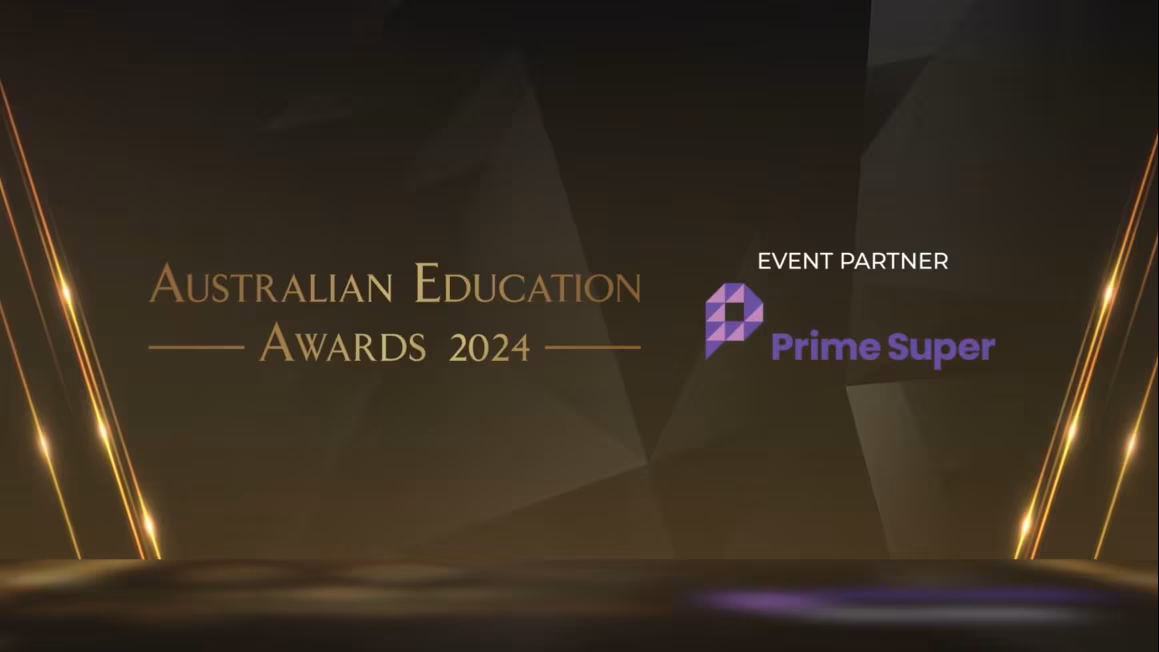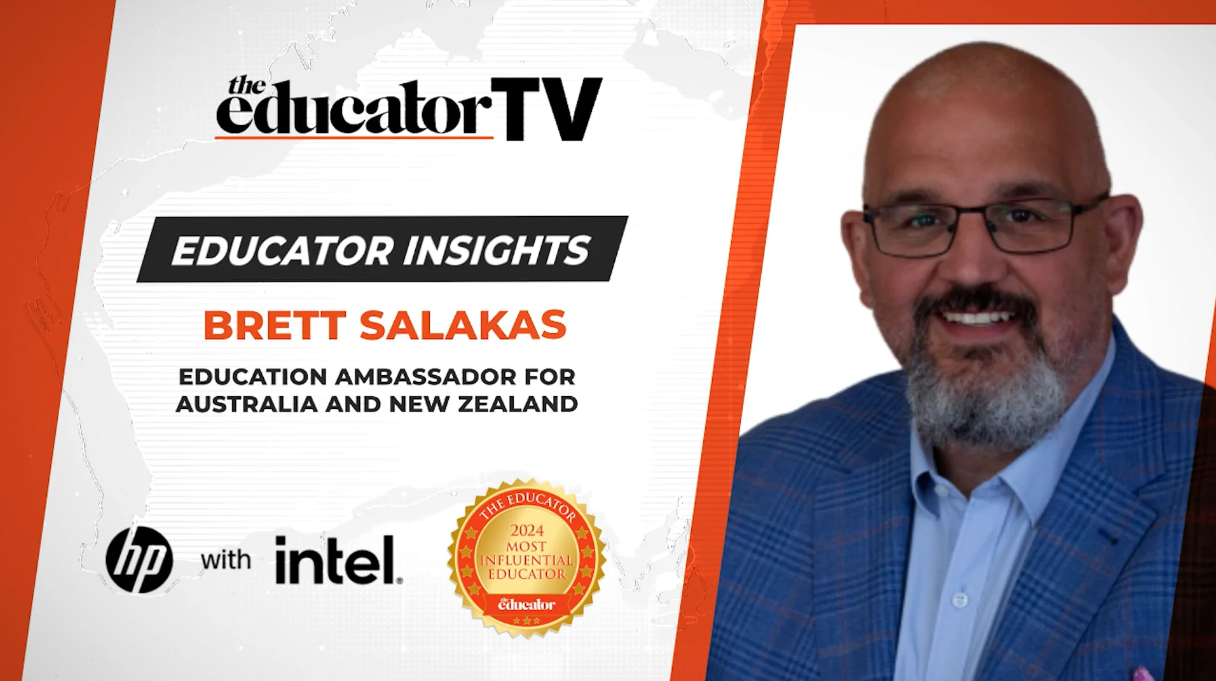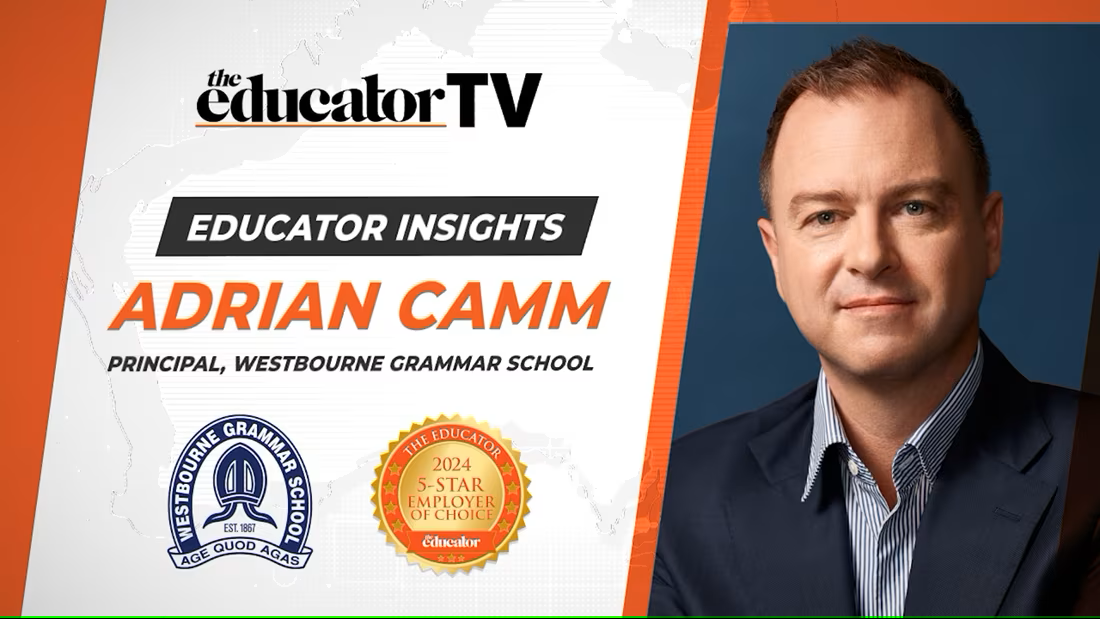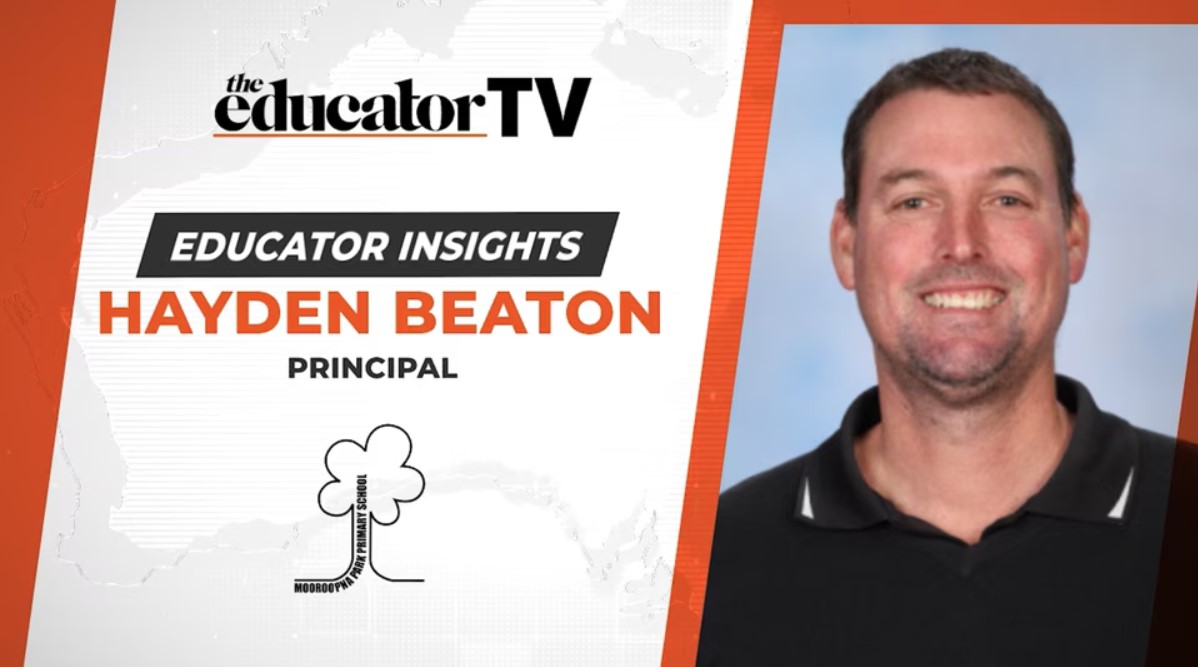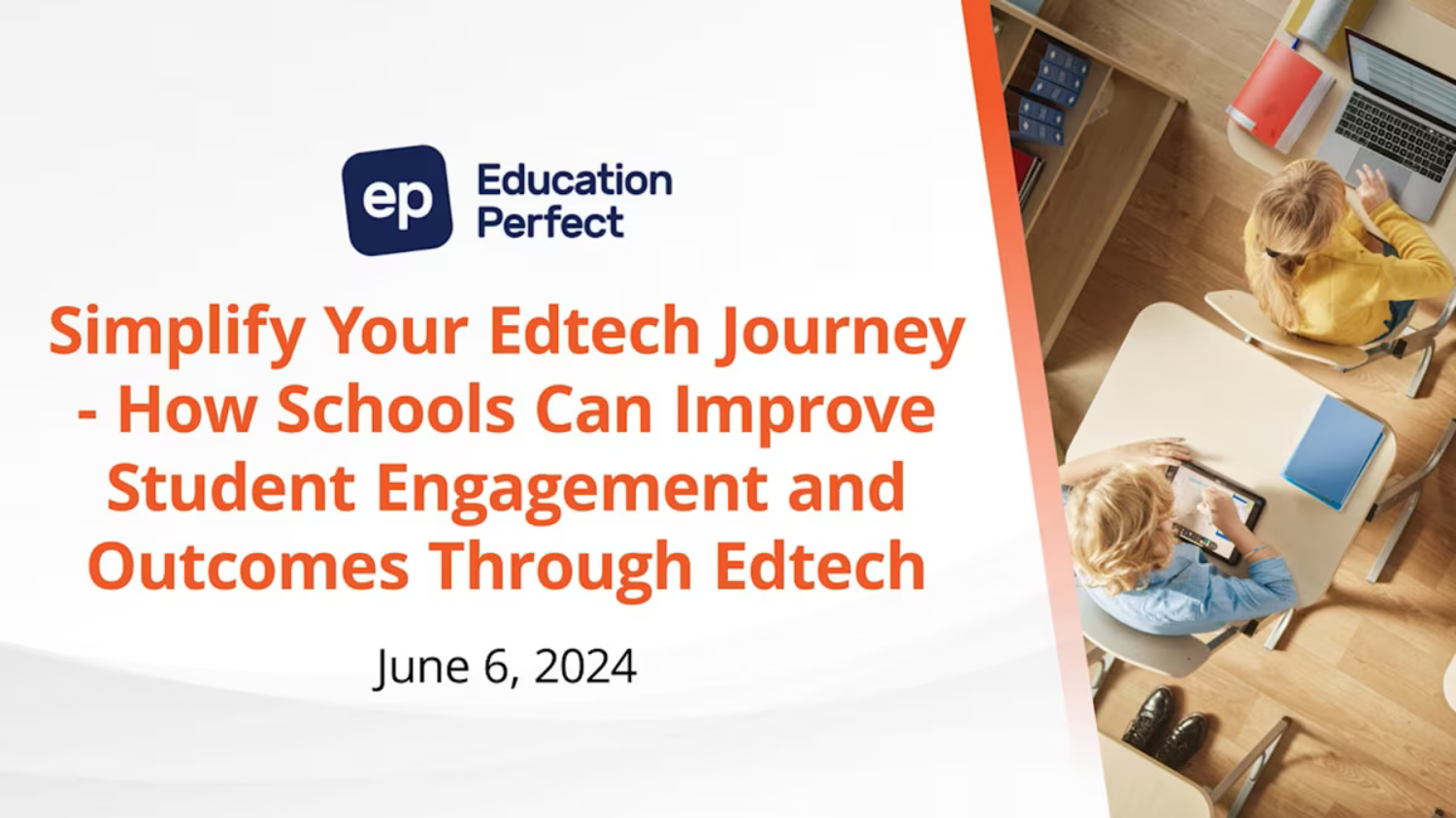Tackling the ultimate social justice issue
In this interview, The Educator talks to Fedele about how International Grammar School’s Sustainability Framework and student-led Sustainable Futures Group are empowering young people to take ownership of projects and actively engage in environmental issues
To view full transcript, please click here
Kylie Speer [00:00:09] Hello and welcome to The Educator TV. I'm Kylie Speer and joining me today is Carmelo Fedele, Head of Sustainability at International Grammar School. IGS is one of the very worthy winners of the educator 5-Star Sustainable Programs for 2023. Welcome to you, Carmelo. Congratulations, and thanks so much for joining us today.
Carmelo Fedele [00:00:33] Thanks, Kylie. It's a pleasure to be here.
Kylie Speer [00:00:36] Well, firstly, Carmelo, why does sustainability matter to you as an educator?
Carmelo Fedele [00:00:42] Well, sustainability casts a really broad net. It's, I think, a lot of our focuses on climate change for very good reason. But it includes many other challenges that we face biodiversity waste, resource use, you know, the list goes on. But essentially, sustainability is about the future. And so for me, it's like the ultimate social justice issue. Because if we care about first nations people, peoples, if we care about forests and the reefs, if we care about living creatures that inhabit the earth, if we care about the most disadvantaged people in the world, if we care about our own health and well being, if we care about the future of our children, then sustainability matters. So that's why it's really important to me, I often think about Christiana Figueres, pardon me, who if you don't know, she's the Executive Secretary, or was the Executive Secretary of the UN. Sorry, the United Nations Framework for the Convention on Climate Change. And she wrote this great book. And it's kind of resounded with me there's one one quote that she used, which was that the climate crisis, both dwarfs and encompasses any other issues that we care about. And it's, it's really stuck with me. So that's, that's why I think sustainability matters.
Kylie Speer [00:02:06] Carmelo, IGS created a Sustainable Futures Group in 2017, which is student led, how does it operate in practice and engage with the wider school community?
Carmelo Fedele [00:02:18] Yeah, we, use the Eco school's seven step process quite a lot. So if you're not familiar with it involves creating an Eco code, which we've just, we've articulated as our vision, our mission and our goals. To form an Eco Committee, which we've called Sustainable Futures, this is our student led group, we need to the third step is to carry out carry out an environmental review. And it's just involves looking at a whole bunch of different areas in the school. And I guess making an assessment of that, from that review, you create an action plan. So a list of the things that you want to tackle and in various areas in the school, you monitor and evaluate any of the initiatives that you have implemented. And then you make sure that you're trying to link that to the curriculum. And then finally, you just you tell everyone about as you inform and involve people, so we use that seven step process, and it's, it's been really helpful for us. In terms of our Sustainable Futures group, we generally meet fortnightly. We discuss student issues that students care about things that they noticed that they're happening in the school, and we would discuss them we try and form a plan around them. And so yeah, a lot of what we do comes from students passions and their interests and their ideas. So yeah, that's kind of how we, we do it at IGS.
Kylie Speer [00:03:55] Carmelo, the students at IGS display a passion for environmental activism due to the exposure they have had on campus? In what ways do you anticipate this continuing and evolving into 2024?
Carmelo Fedele [00:04:10] Yeah, that's a great question. From the very beginning, students at IGS were very involved in the activism side of sustainability. So they were involved in those early protests that were organized by school strikes for climate. Of their own volition. And so I think when I started this role, I was really conscious of that. That willingness to engage in the city process and the power of young people to affect change. So I guess I really wanted to harness that with the support of the school so and our school has been very supportive of students right to engage in those projects. So they have been quite involved. And I and I hope that they will continue to be. So I think, within that activism space, one of the things that I'm most excited about is, is Climate Fresk, which is a French NGO that runs the workshop that's aimed at unpacking the science of climate change in a really accessible and engaging way. And, and empowering young people. And actually, it's not just designed for young people, it's, it's, it's designed for anybody. But I guess for our context, it's, I see it as is empowering young people to understand what is happening with climate change, and to empower them to act on that. So I guess a recent example that I could give you is that there is a duty of care bill that was raised by David Pocock, who's a senator in the federal government, and he was working with Anjali Sharma, who's a young activist who's she's a law student, and they're working on a bill to create a duty of care for, for young people. Like the government has a duty of care to the young people. And so I shared a little bit about that with some of my students, and they really wanted to contribute their ideas, their thoughts and, and their concerns. And so they, they wrote some submissions. And, and yeah, they sent those in. So that's like one example. I hope that they, if there are any other opportunities to get involved in protests or engagement with local members of government, then yeah, well, we'll try and take advantage of those opportunities.
Kylie Speer [00:06:56] Between 2020 and 2022, IGS has seen recycled waste increase from 19 to 50%. And waste sent to landfill decrease from 81 to 50%, along with carbon emissions, from waist falling to Carmelo, what have been the keys to achieving these incredible results?
Carmelo Fedele [00:07:19] It all started with wastewater, and that the reason why I can share that information with you that data that you just cited was that we did measure it. So we've had two big waste toilets over those years that you mentioned, 2020 and 2022. And essentially, that involves getting a group of students together, gathering all the rubbish from across the school, which quite a lot. And sorting it, measuring it, counting it, weighing it, and, and then putting all that information into a spreadsheet that we had, we created to form these graphs and diagrams and things like that to, to show that data. And I think through that process, students, I guess, could really see the scope and the scale of the waste that we produce. And, and really helped us to understand the challenges that we face as a school in terms of our way to production and how we might tackle it. So the first step was organizing and implementing those waste audits. But beyond that, we tried to get some advice. You know, we're not experts in this area, so we could reach out to our waste service providers, and the New South Wales government through the EPA was really helpful the Bin Trim program. So we had assessors come out, and they had to look at our data, and they, they had a site visit. And so together, we found a few strategies that we felt would be most effective. And, you know, they involve some changes to our bin system and to adding some different services that would help us to recycle more waste. And so I guess they're probably the keys to that. I think the last thing I mentioned, and perhaps the most difficult one is around culture change. And, you know, because you can there's, you're gonna have people in your community who really care about this stuff. And then there's going to be those people who don't. And so, I guess trying to communicate the importance of these issues, and trying to get people on board and take them on the journey is that probably that last piece that's really, really important and something we're still working on.
Kylie Speer [00:09:45] Another key factor of your sustainability is the school's energy monitoring system using LED lights and motion sensors. How big a success has this been and do you have any plans to extend it further?
Carmelo Fedele [00:10:00] Yeah, it has been a success. I think as we have, particularly as we've been renovating certain parts of the school at various times, we've been really conscious of making sure that we try and can take those sustainability considerations there from the beginning. And so some of that has involved changes to the lighting. And we've replaced almost all of our lighting with LEDs now, which, you know, does make a difference. But actually, for anyone who's familiar with the built environment, they probably know that most of our energy usage actually comes from heating, ventilation and cooling. And that's true for us. So I guess, the monitoring system helped us to identify that because we were able to meet a certain parts of the school and we were able to isolate the HVAC system to see what component of energy use came from, then it turns out, it was the most significant part of our energy use, I think it's about two thirds from Emory. And so we looked at ways that we could find some efficiencies there as well. So we had this big chiller plant, which, I guess, is a really important part of that paycheck system. And we realized that was sort of getting quite old, and that we could, we could look to replacing that with a more efficient plan. And so that's something that we're working on to change very soon. So that, you know, that's one part of it. We have changed that energy providers from one of the really big, well known, but also highly polluting energy providers to a smaller provider. That's using more renewables and in their energy provision, where we're considering the use of power purchase agreements. And we're also looking at expanding our on site solar. So we've got some on site solar, and we're looking at upgrading and expanding that. So yeah, I mean, there's still lots to be done in that space, too.
Kylie Speer [00:12:06] And finally, Carmelo, how proud Do you feel? And how big of a priority is it to see IGS students displaying commitment to sustainability beyond the school gates? And is this ultimately your goal from an education point of view?
Carmelo Fedele [00:12:23] Yeah, first and foremost, I consider myself a teacher, I still spend most of my time in the classroom. And so this head of sustainability role is, is very much a part of that. And so for me, it's incredibly important that whatever we're doing in the sustainability space, that students are involved, so that they can learn through this process and take that learning with them wherever they end up. And, and I can think of a number of students who have been involved over the years, for whom I think that's made a really considerable difference in terms of not only how they see the world, but also what path they might take in terms of their future careers. So I can think of one particular student who was there from the beginning, who ended up I guess, becoming pretty inspired to, to help protect conserve ecosystems, and he went on to study marine biology at the University of Tasmania, and and he's now working on helping to preserve the Great Southern reef. So I think about that journey and where he's ended up. And, and I think, the work that we did, and how that sort of shaped his his, I guess, career trajectory, and I can name a dozen other examples of students who has made that those sorts of choices, whether they've ended up I can think of another student who has ended up in politics and yeah, I mean, it's, it's really encouraging to see that. I think one of my colleagues was reflecting on the fact that, as teachers, we, we don't often get to see the success and the impact that we have till much later than going for, like, someone who's a builder, they, they build a house, and it's there and they see that it's complete, and they've successful, we don't often know until that young person has grown up into, you know, 40 year old whatever, and, you know, they, they can look back and say, you know, my education set me on this on this trajectory and so when you do hear back from those students and you know, that made so life decisions that really have an impact on the world, it's incredibly fulfilling. So yeah, To answer your question, I am really proud, really proud that of the work that we're doing at IGS. And for the students that come at our school.
Kylie Speer [00:15:10] Well congratulations on your well deserved accolade. And thank you so much once again for your time today Carmelo. It was so great hearing about your success at IGS.
Carmelo Fedele [00:15:20] Such a pleasure.
Kylie Speer [00:15:22] And thank you, of course to our viewers for tuning into The Educator TV. We look forward to seeing you again soon.



